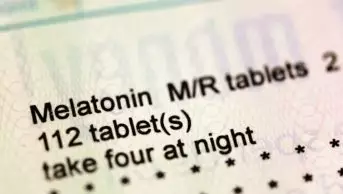
Shutterstock.com
The Medicines and Healthcare products Regulatory Agency (MHRA) has announced that codeine linctus is to be reclassified as a prescription-only medicine (POM) owing to the risk of abuse, dependency and overdose.
Codeine linctus is an opioid medicine licensed as an oral solution or syrup to treat dry cough in adults, and has previously been available as a pharmacy (P) medication.
In a statement published on 20 February 2024, the MHRA said that there had been increasing reports in the media of codeine linctus being misused, including as an ingredient in an illegal recreational drink known as ‘purple drank’.
Alison Cave, chief safety officer at the MHRA, said that codeine linctus is an effective medicine for long-term dry cough, but “its misuse and abuse can have major health consequences”.
The decision to reclassify the medicine was made following a public consultation, which ran from 18 July to 15 August 2023. Responses to the consultation identified the pressure pharmacists were under to provide codeine linctus to people suffering from addiction.
Announcing the launch of the consultation, the MHRA said that it had received 116 Yellow Card adverse effect reports of recreational drug abuse, dependence and/or withdrawal to codeine medicines, including codeine linctus, since 2018.
The consultation received 992 responses from independent experts, healthcare professionals and patients.
In its consultation response, the Royal Pharmaceutical Society (RPS) supported reclassification of codeine linctus, emphasising the lack of evidence on the clinical effectiveness of the medicine in relieving dry cough and the availability of other non-codeine based alternatives in the market.
Responding to the reclassification, Claire Anderson, president of the RPS, said it was “a positive step to protect patient safety”.
“This decision not only addresses concerns about the misuse and addictive potential of codeine linctus, but also underscores the importance of prioritising patient wellbeing,” she said.
Anderson added that many community pharmacists already no longer stock codeine linctus owing to “concerns about addiction and abuse”.
“Those that do provide it often experience aggression from patients if they refuse a sale because, in their clinical judgement, it’s not appropriate to supply the medicine,” Anderson said.
Michelle Riddalls, chief executive of consumer healthcare association, the Proprietary Association of Great Britain, said: “Patient safety and wellbeing is paramount for manufacturers of OTC [over-the-counter] medicines.
“The decision to reclassify codeine linctus demonstrates that the reclassification system is effective; this will ensure that people are only able to access medicines that allow them to self-care safely.”
In June 2022, The Pharmaceutical Journal revealed that the MHRA was reviewing the impact of warning labels on sales and prescribing of codeine linctus.
You may also be interested in

Politicians urged to review prescription charge system as fee rises to almost £10 per item

Melatonin should not be available through NHS for treatment of jet lag, experts say
